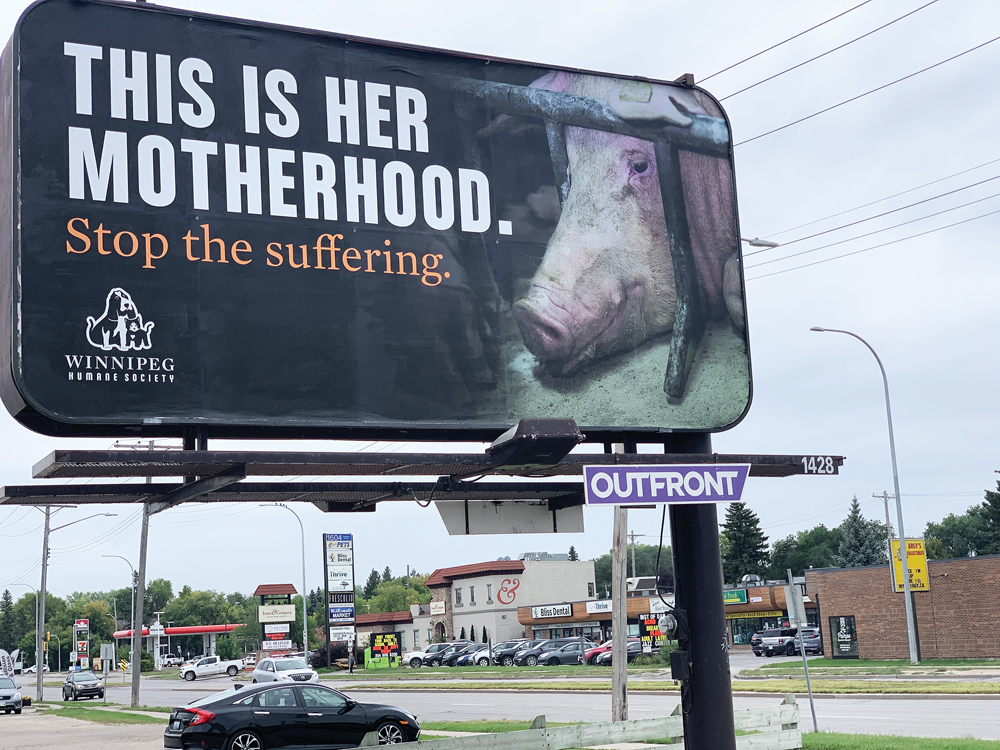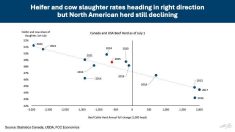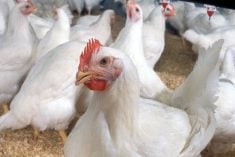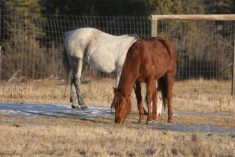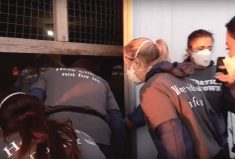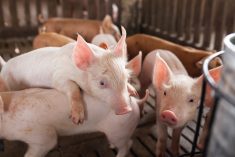A new Winnipeg Humane Society billboard campaign takes aim at Manitoba’s pork industry.
Eight billboards have gone up around Manitoba’s most populous city, all carrying various warning messages about pig welfare on farms and during transportation in the province.
“Our goal is to educate consumers on the various animal welfare red flags that are associated with industrialized pork production,” said Brittany Semeniuk, animal welfare specialist for WHS.
Read Also
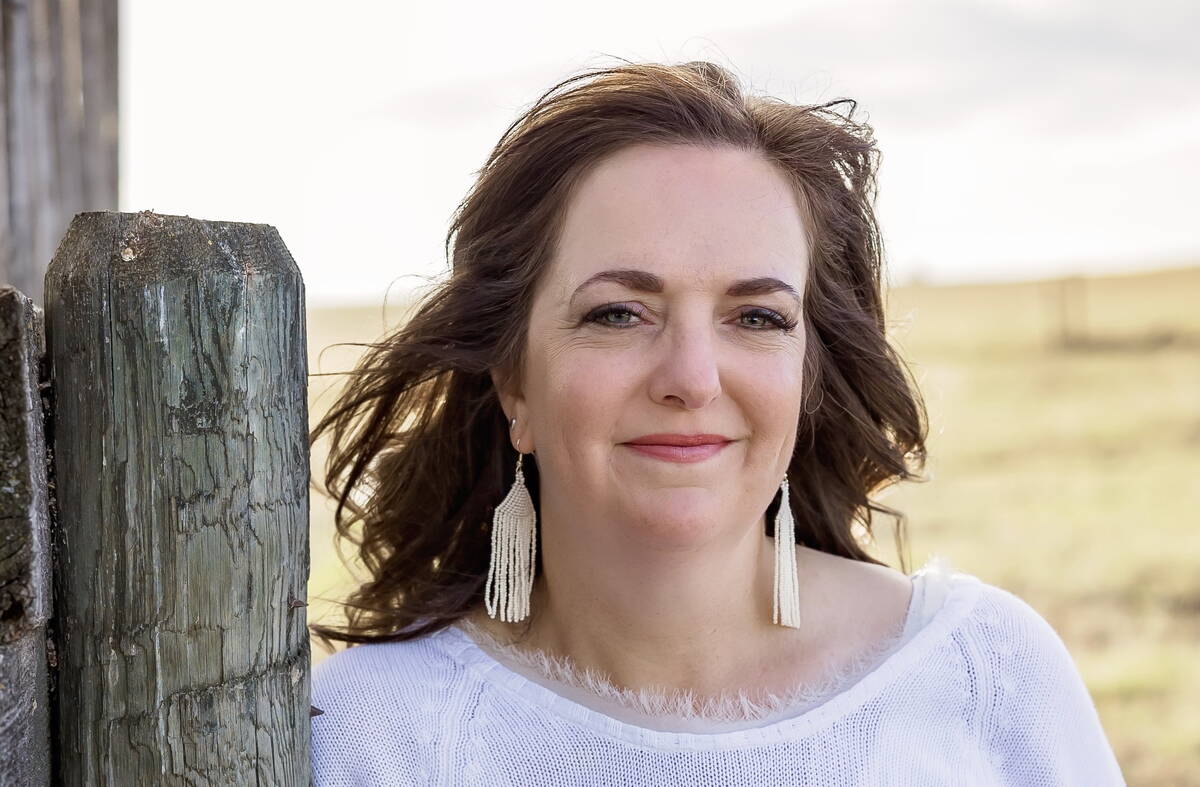
Canadian Cattle Association names Brocklebank CEO
Andrea Brocklebank will take over as chief executive officer of the Canadian Cattle Association effective March 1.
Why it matters: Public trust and perception of animal welfare are perennial files with Manitoba’s main livestock groups, pork included.
Manitoba Pork general manager Cam Dahl said he wasn’t surprised to see the billboard campaign, given the current election campaign.
“We’re not alone. They launched a similar campaign in February against dairy and another campaign against eggs in May,” he said.
Gestation crates
One focus of the campaign, dubbed “Stop the Suffering” by the humane society, is the use of gestation stalls, which animal activists say are inhumane because they do not give sows enough room to properly move.
The WHS website states that “industrial agriculture denies mother pigs the chance to embrace their natural and maternal instincts, caging them in tight crates where they can barely turn around.”
In 2014, the Canadian pork sector agreed to phase out gestation crates by 2024 as part of an update to pig care standards set out by the National Farm Animal Care Council (NFACC).
That timeline hit a speed bump. In 2020, in its five-year review of the code, the NFACC introduced a recommendation to extend the deadline to 2029 for transition away from gestation crates.
“Not all pork producers will be able to make the conversion to group housing by the 2024 deadline identified in the code without compromising the welfare of the animals, a risk that results from a rushed conversion to inadequate facilities, and/or causing significant financial burden for some producers,” the review stated.
The pig code’s amendment committee was unable to reach consensus on the proposed change, leaving the extension in limbo.
The humane society wants the NFACC to keep the original deadline.
“We’re now looking at another five years where these animals are going to be severely confined and severely restricted with their movements,” said Semeniuk.
Regardless of any extension, Dahl said the industry is committed to moving away from gestation crates, adding there is good progress on that shift in Manitoba.
“The majority of sows are currently group housed, so the transition is well underway,” he said.
But Semeniuk said the campaign isn’t only about gestation crates.
“Be it stocking densities, transportation or routine husbandry practices that these animals have to endure, our goal is to remind consumers that the issue of gestation crates is really just one drop in the bucket.
“We still haven’t addressed the fact that pigs are kept on barren concrete, that they don’t get outdoor access and that they’re victims of very invasive procedures,” said Semeniuk, later adding that “they are one of the most intelligent animals on the planet; their intelligence ranks on par with chimpanzees and dolphins, and yet we continue to house them and raise them en masse.”
Push back
Dahl rejects the notion that Manitoba hog farmers treat their animals improperly.
“Hog farmers care deeply for their animals,” he said. “That is a shared value with all Manitoba residents.”
He said he defers to the advice of professionals who draw up the regulations rather than the emotional pleas of activists.
“My general response is to go back to the basics of the animal care that Manitoba hog farmers provide,” said Dahl, and those basics begin and end with the NFACC’s code.
“There are well over 100 different requirements for animal care that farmers must meet. [The code] is not something we make ourselves; it’s informed by scientists, researchers and veterinarians. It also includes governments and NGOs in the process. It’s based on a lot of really good science.”
He said the code is further supported by the Manitoba Health of Animals Act, which sets legally binding regulations and requirements for Manitoba producers.
Semeniuk said the regulations are not working. She pointed to an incident last summer, in which a shipment of pigs attempting to cross the border at Emerson was turned back after it was discovered that some of the pigs had died due to apparent heat exhaustion.
The incident only became public as a result of a Freedom of Information and Protection of Privacy Act request by the animal rights group Animal Justice.
Dahl said the only way that would happen is if someone didn’t follow regulations, but he had no information about the incident.
After receiving the FIPPA report in January, Animal Justice released the information in a short blog post in June 2023. No major media outlets posted a story.
Semeniuk said the timing of the campaign, within weeks of the provincial election, is no accident. She said she wants voters to ask candidates about their party’s stance on these issues.
“Does their party support a moratorium on hog barns in the province? Does their party acknowledge that there are ways to improve our husbandry practices for pigs?
“It’s really just about getting those conversations started.”




